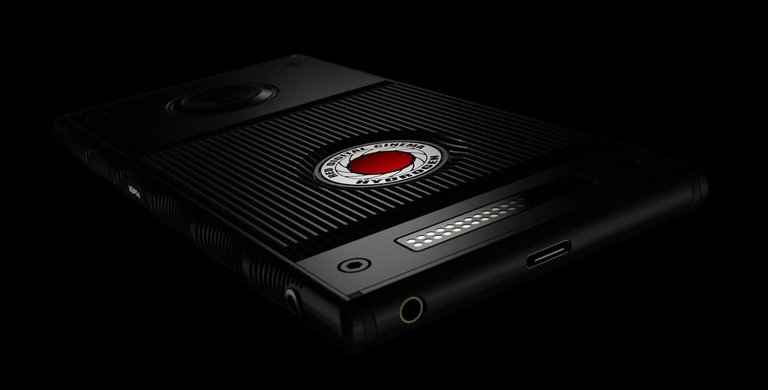
RED Digital Camera's Hydrogen One smartphone - "the world's first holographic media machine."
Jim Jannard has made a career out of revolutionizing lenses. His first business was sunglasses brand Oakley, which started out of his car with $300 in 1975. After going public in 1995, it later sold to Luxottica for $2.1 billion. In 2005, he founded RED Digital Camera, which reimagined how to build high-resolution cinema cameras. It has since become a favorite of directors from James Cameron (Avatar) to Ridley Scott (The Martian) to Peter Jackson (The Lord of The Rings, The Hobbit).
Now the University of Southern California dropout is launching his third act, and it may just be his biggest yet. RED released an augmented reality/virtual reality smartphone on Thursday July 6. According to Jannard, the phone can easily transition from traditional 2-dimensional content to holographic media, 3-dimensional content or interactive games — without the need for any glasses or headsets. Called Hydrogen One, the Android OS smartphone is being touted by RED as “the world’s first holographic media machine” due to its “additional features that shatter the mold of conventional thinking.”
“I never believed that AR and VR would be successful as long as you needed a pair of glasses or a headset to view content. No one wants to drag around another piece of gear that has to be charged every day,” Jannard told FORBES. “Hydrogen opens the door to AR and VR with the one product that you carry with you all the time. We just added holography and stereo 3D for good measure.”
Jannard, RED’s chairman, says the smartphone took more than three years to develop. For now, its holographic content will come from RED’s own channel of movies, documentaries and games. A user can also upload their own content. On the music side, there is a proprietary algorithm that translates stereo sound into expansive multi-dimensional audio. “The difference this makes would be enough to justify the entire system,” said Jannard in a statement. (Today, FORBES estimates Jannard is worth $4.3 billion.)
Hydrogen One is also going to anchor a new technology system that will include attachments for shooting higher quality motion and still images as well as holographic images that RED will eventually launch, according to RED’s release.
Because Hydrogen One doesn’t rely on any additional hardware, it’s vastly different from what’s on the market right now. Tech giants Sony, Google, Samsung and Facebook have launched VR headsets in recent years, and Magic Leap, the secretive $4.5 billion startup, is working on VR glasses. Even Snapchat recently filed several patents for its AR product, Spectacles, which has yet to be released. Meanwhile, in 2017 Apple announced it would start integrating AR into its platform over the next five years.
Thursday’s launch is essentially a small-scale, pre-order release. Hydrogen One orders will come from Jannard’s own stockpile from the “first production batch” and it will be available to ship during the first quarter of 2018. The aluminum model costs $1,195, while the titanium version is $1,595. “I can assure you that after this initial releases we will not be able to fill all orders on time due to display production limitations,” Jannard says in the statement. And the price could go up come next year, Jannard adds: “We will not guarantee these prices at the time of release.”